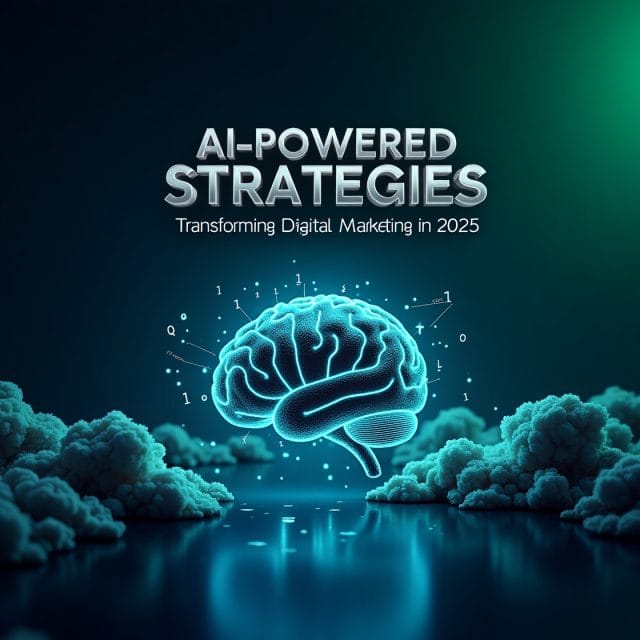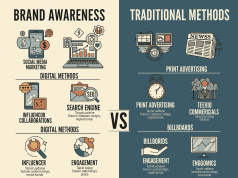In 2025, the landscape of digital marketing is undergoing a revolutionary transformation fueled by artificial intelligence (AI). As businesses seek to engage consumers more effectively and efficiently, AI-powered strategies have become indispensable. This article explores how AI is reshaping digital marketing, the strategies being adopted, and the future implications for brands.
Personalized Experiences
Data-Driven Insights
At the core of successful digital marketing lies the ability to understand consumers. AI algorithms analyze vast amounts of data—from browsing behaviors to purchase histories—enabling marketers to craft highly personalized campaigns. With tools like machine learning and predictive analytics, businesses can anticipate customer needs and deliver tailored content that resonates with individual preferences.
Dynamic Content Creation
AI tools are now capable of generating content at scale. From social media posts to blog articles, AI-driven content creation tools analyze trending topics and customer sentiment to produce engaging material quickly. This not only saves time but also ensures that marketing messages are relevant and timely.
Enhanced Customer Engagement
Chatbots and Virtual Assistants
Customer service has taken a leap forward with AI-powered chatbots. These intelligent systems can engage with customers in real-time, answering questions, providing product recommendations, and resolving issues 24/7. By enhancing the customer experience, chatbots drive engagement and improve conversion rates.
Emotion Recognition Technology
Innovative AI solutions now include emotion recognition technology, which can analyze consumer reactions to digital ads or social media content. By understanding emotional responses, marketers can fine-tune their messaging to connect on a deeper level with audiences, fostering stronger brand loyalty.
Predictive Analytics
Shaping Future Strategies
Predictive analytics is a game-changer in digital marketing. By utilizing AI to analyze historical data, marketers can identify patterns and trends that inform future strategies. This foresight enables businesses to allocate resources more effectively, optimize ad spending, and ultimately drive better ROI (Return on Investment).
Customer Segmentation
AI enhances customer segmentation by identifying niche markets and potential customer groups based on behavioral attributes. Advanced algorithms can cluster customers with similar traits, allowing marketers to target these segments with precision, thereby maximizing the effectiveness of their campaigns.
Optimizing Marketing Campaigns
A/B Testing Automation
Gone are the days of manual A/B testing. AI tools automate and optimize the testing process, analyzing performance metrics and determining which variations of ads or landing pages yield the best results. This real-time optimization significantly boosts campaign performance.
Smart Ad Buying
Programmatic advertising, powered by AI, allows for real-time bidding on ad space across various platforms. AI evaluates numerous variables—audience behavior, time of day, and even competitor actions—to make data-driven decisions that enhance ad targeting and reduce costs.
The Future of AI in Digital Marketing
As we look to the future, the integration of AI in digital marketing shows no signs of slowing down. Emerging technologies such as natural language processing and advanced machine learning algorithms are likely to further refine how brands engage consumers.
Ethical Considerations
With great power comes great responsibility. The ethical implications of AI in marketing are increasingly under scrutiny. Brands must navigate the balance between personalization and privacy while ensuring transparency with consumers about data usage.
Continuous Learning and Adaptation
As AI evolves, so too must marketing strategies. Continuous learning and adaptation will be essential for marketers to stay ahead in a rapidly changing landscape. Embracing new tools and technologies will help brands remain relevant and competitive.
Conclusion
AI-powered strategies are redefining the digital marketing landscape in 2025. By harnessing the power of data and intelligent algorithms, businesses can create personalized, engaging experiences that resonate with consumers. As we continue to embrace AI, the potential for innovation in digital marketing is limitless, making it an exciting time for brands and marketers alike. Embracing these changes not only enhances operational efficiency but also builds stronger connections with customers, paving the way for sustained growth and success in the digital age.









